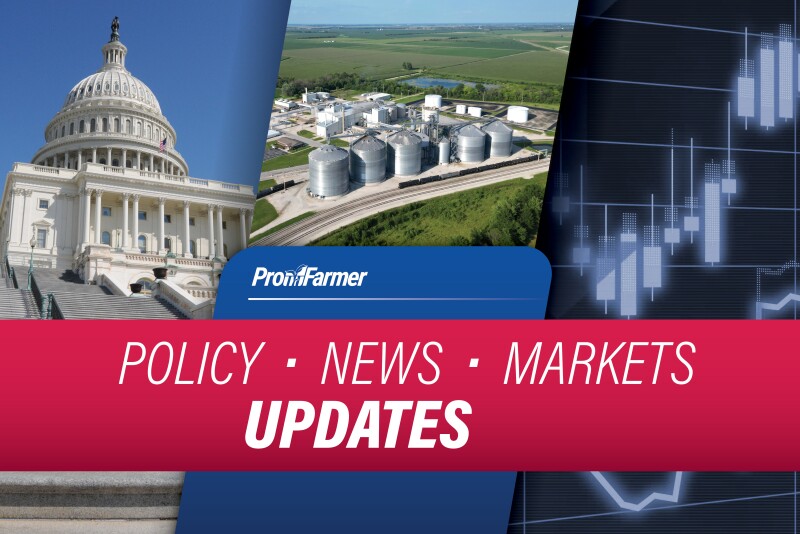Recap of trade talks: Trade deals may be drawing closer... While positive results were reported in trade talks last week, no formal trade deals were reached last week.
- China: President Donald Trump and Chinese President Xi Jinping talked after both countries accused the other of violating terms of the deal that led to the 90-day tariff truce. A meeting between U.S. and Chinese officials is expected to happen within a week.
- Japan: The two sides held the fifth round of trade negotiations in Washington, aiming to finalize a broad agreement before the upcoming G7 summit in Canada. Japan wants auto tariffs relief. Non-tariff barriers were also discussed, with Japan open to increased imports of U.S. ag goods and cooperation on semiconductors and shipbuilding.
- India: Officials held talks in New Delhi aiming to finalize tariff cuts for specific sectors, including ag goods and autos. India reportedly resisted opening its grain and dairy markets.
- EU: Brussels is open to lowering tariffs on U.S. fertilizer imports and increasing purchases of hormone-free U.S. beef but will not weaken its food safety standards to secure a deal.
Senate GOP eyes softer SNAP cuts amid budget talks... Republicans on the Senate Ag Committee are seeking to scale back the Supplemental Nutrition Assistance Program (SNAP) cuts proposed in the House’s sweeping budget reconciliation bill, according to Chair John Boozman (R-Ark.). Boozman said the ultimate figure remains a “moving target,” but acknowledged Senate Majority Whip John Thune (R-S.D.) is urging the panel to aim for a net reduction of approximately $150 billion — significantly below the House’s $238 billion proposed cut, which includes offsetting increases for farm programs.
Of note: GOP senators are still trying to include a $70 billion farm bill package.
The House proposal hinges on a controversial cost-sharing provision that would force states to cover a portion of SNAP benefits — an idea Boozman said is generating resistance among Senate Republicans. “I think they would like for us to be in that range,” he said of the $150 billion mark.
The Senate’s version is expected to include expanded work requirements for SNAP recipients and increased commodity program support, aligning more closely with agricultural policy goals. Boozman noted the committee is still waiting on Senate parliamentarian guidance regarding the inclusion of certain farm bill provisions, though he declined to provide further detail.
RFS lobbying surge intensifies as OMB adds more meetings... The Trump administration is facing mounting lobbying pressure as additional meetings have been scheduled for EPA’s “Renewable Fuel Standard (RFS) Program: Set 2” proposed rule, now under formal review at the Office of Management and Budget (OMB). As of this week, 24 meetings have either been completed or are on the books—an unusually high number signaling intense industry interest.
Among the latest additions:
- June 16: A session with Sidley Austin LLP representing a “group of obligated parties” subject to the RFS.
- June 17: A meeting with Waste Management, likely concerning landfill gas and renewable natural gas pathways.
- June 18: A meeting with SIGMA (fuel marketers), Anew Climate carbon reduction solutions company), and Canadian based renewable cellulosic biofuel company Iogen Corporation.
In parallel, the final rule on the Partial Waiver of the 2024 Cellulosic Biofuel Volume Requirement is also drawing significant attention. OPAL Fuels is set to meet with OMB on June 7, marking the 7th session held on this specific issue alone.
Observers say the frequency of these meetings — along with the diversity of participating stakeholders — suggests EPA remains on track to announce final rules in June, though past precedent shows that later-scheduled meetings are sometimes cancelled without explanation. The intensity of these sessions reflects deep concerns across both biofuel producers and obligated parties over volume mandates, compliance costs, and pathways for renewable gas.

